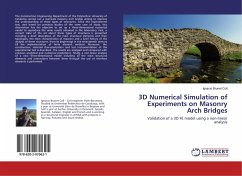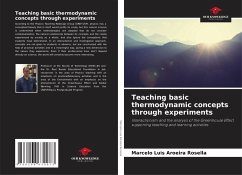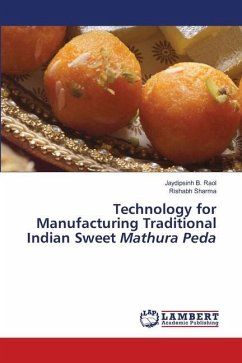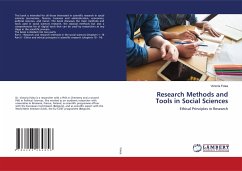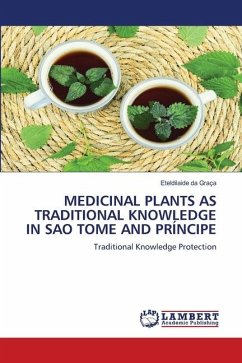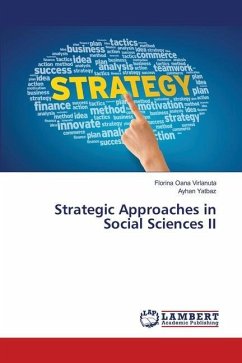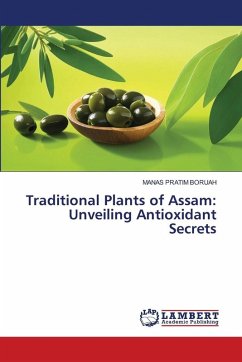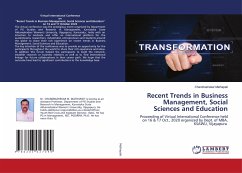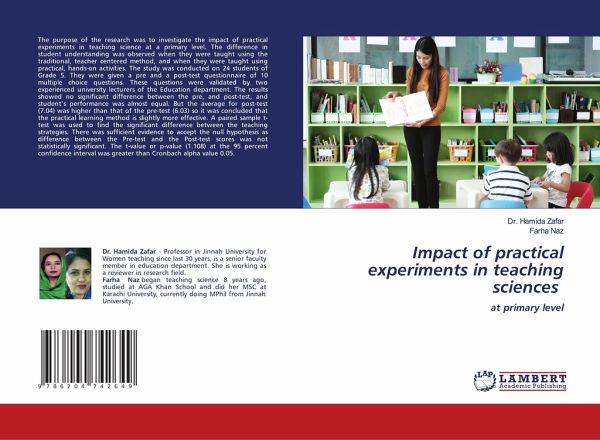
Impact of practical experiments in teaching sciences
at primary level
Versandkostenfrei!
Versandfertig in 6-10 Tagen
25,99 €
inkl. MwSt.

PAYBACK Punkte
13 °P sammeln!
The purpose of the research was to investigate the impact of practical experiments in teaching science at a primary level. The difference in student understanding was observed when they were taught using the traditional, teacher centered method, and when they were taught using practical, hands-on activities. The study was conducted on 24 students of Grade 5. They were given a pre and a post-test questionnaire of 10 multiple choice questions. These questions were validated by two experienced university lecturers of the Education department. The results showed no significant difference between t...
The purpose of the research was to investigate the impact of practical experiments in teaching science at a primary level. The difference in student understanding was observed when they were taught using the traditional, teacher centered method, and when they were taught using practical, hands-on activities. The study was conducted on 24 students of Grade 5. They were given a pre and a post-test questionnaire of 10 multiple choice questions. These questions were validated by two experienced university lecturers of the Education department. The results showed no significant difference between the pre, and post-test, and student's performance was almost equal. But the average for post-test (7.04) was higher than that of the pre-test (6.03) so it was concluded that the practical learning method is slightly more effective. A paired sample t-test was used to find the significant difference between the teaching strategies. There was sufficient evidence to accept the null hypothesis as difference between the Pre-test and the Post-test scores was not statistically significant. The t-value or p-value (1.108) at the 95 percent confidence interval was greater than Cronbach alpha value 0.05.




